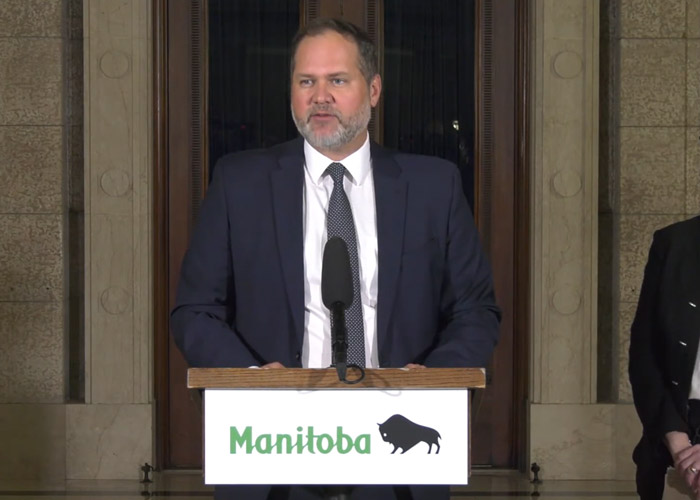The Manitoba government reiterated its commitment to making rural communities safer and Manitobans feel safe through its five-point plan that includes strengthening the province’s bail system and developing a new provincewide strategy to reduce crime and make communities safer.
“We have been hearing so much about public safety and crime from Swan River,” said Premier Wab Kinew. “In the past few years we’ve heard about business locking their doors, frustrations with a revolving door of chronic offenders and average families worrying about the future of their community. It’s really hit home for us. We’re here to take action. We have a five-point plan to reform bail that will build a direct response to the issues in this community and others and set the stage for a long-term approach that will make a difference. Our plan is grounded in a commitment to be tough on crime and tough on the causes of crime.”
The minister noted the plan includes:
- Bolstering Crown bail policies. Crown attorneys were recently equipped with enhanced policies that include considering impacts of bail on victims and the community, particularly in cases of intimate partner violence and chronic violent offenders. Crown attorneys assess whether detention is necessary to maintain public confidence in the justice system and public safety having regard to all the circumstances including any relevant community perspective.
- Investing more than $500,000 to implement an enhanced Community Monitoring and Supervision Program. This program will provide intensive supervision and expanded supports to chronic offenders with better mental-health and substance-use supports.
- Investing in law enforcement resources. The province is giving police the resources they need to help track down offenders who violate their bail conditions by investing $3 million for 12 new officer positions whose primary focus will be to arrest offenders who pose a serious risk to the safety and well-being of the community including those charged with intimate partner violence offences.
- Data and intelligence through business intelligence. The province is investing $514,000 to expand capabilities to provide robust reporting capacity to inform decision-making at provincial and federal levels. This expanded capacity will enable information to be more widely shared with other jurisdictions and policing agencies.
- A public safety summit, which was hosted earlier this week.
“Manitobans in every part of our province deserve to feel safe in their community,” said Justice Minister Matt Wiebe. “With our five-point plan on bail reform, we are taking action on public safety in Manitoba, making our communities safer with investments in monitoring and supervision, stronger policies for Crown attorneys and more tools for law enforcement. Together, these changes will help us create a future where every Manitoban feels safe in their community.”
The public safety summit brought together a variety of community leaders from across Manitoba including representatives from Indigenous leadership and organizations, law enforcement, restorative justice, victims service organizations, municipalities, advocates serving vulnerable populations and other agencies, to discuss shared priorities and how to address the root causes of crime.
Feedback from the public safety summit will be incorporated into a provincewide strategy to reduce crime and make communities safer, which will be released in late September. The justice minister will discuss public safety in partnership with the Association of Manitoba Municipalities at district meetings in the Parkland and other regions.
For more information about Manitoba Prosecution Services policies visit gov.mb.ca.


